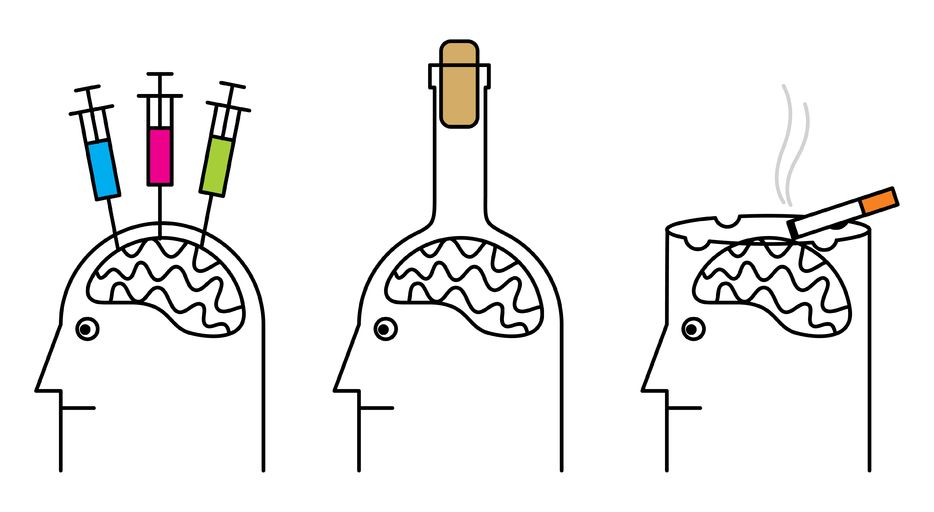Drug and Alcohol Evaluation
What are common reasons for an evaluation?
Someone may seek professional assessment for alcohol or drugs if he/she has had a violation of the law, or an incident in the workplace, at school, at home that involved the presence of drugs or alcohol. While a violation by itself may not be a sign of an actual substance abuse problem, the court, employer, or school administration will often want a professional alcohol evaluation or a drug and alcohol assessment as part of their investigation process.
More specifically, a drug or alcohol evaluation may be requested as a result of:
- A DUI charge or arrest involving drugs or alcohol
- A positive required drug screening at work
- A noticeable change in behavior (for the worse) at work or school
- An excessive unexplained or unexcused amount of absenteeism
- A request for DMV/BMV license reinstatement
- A school drug/alcohol rule violation
- A physician requested alcohol assessment
- A safety-sensitive employee violation
- A family member concerned about the user’s health or interactions with others
What’s the outcome of the drug or alcohol evaluation?
There are several possible outcomes from the assessment, but generally, the client (user) will be labeled in one of these three main categories: (1) chemically dependent on drugs or alcohol, (2) suffering from drug or alcohol abuse or potential abuse, or (3) not enough evidence to support the diagnosis of a drug or alcohol problem.
When someone is deemed chemically dependent on drugs or alcohol, the counselor will likely recommend treatment, and will discuss the benefits of inpatient or residential treatment versus an outpatient treatment program, support groups, and individualized counseling.
If the evaluation has determined that someone suffers from drug or alcohol abuse or potential abuse, the recommendation can be long-term therapy to substance abuse education, or a few individual counseling sessions.
Finally, if there is insufficient evidence of substance abuse, the “user” may be asked to attend a drug and alcohol school for a day for better awareness of how the effects of drugs and alcohol can negatively impact his/her life and the lives of others, or be offered information on other sources for assistance.
The two more serious categories of drug or alcohol use are often confused. Substance abuse experts make a distinction between drug or alcohol abuse and addiction. Abusers maintain some ability to set limits on their substance use, whereas addicts are psychologically and physically dependent on drugs or alcohol. Addicts rely on their substance of choice to function and feel physically compelled to consume it.
What are common signs and symptoms of alcohol or drug abuse?
If you are aware of some of these signs and symptoms, it may help you to recognize the problem within yourself or someone you care about. That in turn, could be fundamental in getting help before the abuse becomes full-blown addiction. Even though alcohol or drug abuse means that someone is not yet addicted, their substance use is still self-destructive, can have a huge, negative impact on their lives and those close to them, and they can be dangerous to themselves and others.
Signs and symptoms include, but are not limited to:
- Repeatedly neglecting responsibilities at home, work, or school because of the drinking or drug use.
- Using alcohol or drugs in situations where it is physically dangerous: such as drinking and driving, while operating machinery, mixing with prescription medications.
- Experiencing repeated legal problems on account of substance abuse.
- Continuing alcohol or drug use even when it is causing problems within personal relationships.
- Drinking or taking drugs to relax or de-stress.
- Changes in personality or behavior and complaints from peers, family, co-workers because of it.
What are common signs and symptoms of alcohol or drug addiction?
Addiction involves all of the symptoms and signs of substance abuse, but it also adds another powerful element: physical dependence on the drugs or alcohol. How do you know if you or someone you know is an addict?
An early warning sign is tolerance. The user has to consume noticeably more alcohol or drugs to achieve the same effect. A major warning sign is withdrawal. The user suffers symptoms of withdrawal, such as: shakiness or trembling, sweating, nausea and vomiting, insomnia, headache, even upon rising in the morning after a night of sleep.
Other warning signs include:
- Lost control over drinking or using drugs.
- The desire to quit, but inability to do so.
- Given up on other activities or hobbies because of alcohol or drugs.
What now?
After the professional drug and alcohol evaluation, you have a better understanding where you or your loved one fits on the scale of use, abuse, or addiction. Take advantage of the opportunity to ask questions of the professionals administering the assessment. They are trained and knowledgeable in the field of substance abuse and addiction, and will have useful education materials to help you learn more.
If you and your loved one are searching for freedom from addiction or simply need guidance in discovering the benefits and importance of healthy living, now could be a good time to start your path towards healing at Moffitt Wellness Retreat.




